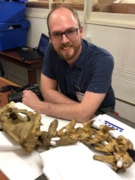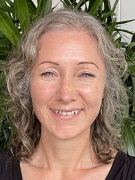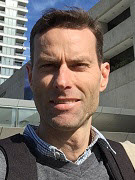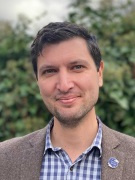The Atlas of Living Australia’s (ALA) first webinar of 2024 showcased a selection of amazing projects from the Australian Biodiversity Data Mobilisation Program. This important initiative supports the mobilisation of Australia’s biodiversity data which may not yet be digital, making it available through the ALA, and internationally to the Global Biodiversity Information Facility. By improving digital access, the program delivers stronger research and conservation outcomes for Australia’s unique biodiversity.
Hear from three projects that were supported through the program. Learn about the transformative power of biodiversity data, and how previously inaccessible physical specimens in biological collections can be made available as open data.
The ALA receives support from the Australian Government through the National Collaborative Research Infrastructure Strategy (NCRIS) and is hosted by CSIRO.
Speakers
Dr David Hocking

Dr David Hocking is the Senior Curator of Vertebrate Zoology at the Tasmanian Museum and Art Gallery (TMAG). TMAG houses the Tasmanian Devil Tissue Bioarchive and also curates a growing collection of frozen tissue specimens for a wide range of vertebrate wildlife. The 2023 Australian Biodiversity Data Mobilisation Program allowed TMAG to digitise a remaining bulk collection of devil tissues and establish a new TMAG Tissue Collection on the ALA providing a public portal into this growing resource of specimens for future research and analysis.
Dr Mieke Strong

Mieke has over 15 years working and studying biological sciences and has a PhD in the taxonomy of fish parasites from the University of Queensland and the Queensland Museum. She has worked as a technical officer at the Department of Fisheries in Western Australia, as a researcher at the Western Australian Museum (terrestrial invertebrates), and as an environmental consultant at Biota Environmental Sciences. As part of her current role at Gaia Resources, Mieke interest is in determining data formatting and data requirements for natural sciences and collections projects, focusing on data standards.
Dean Beasley

Dean Beasley joined Queensland Museum in 2019, and administer the Vernon Collection Management System used to catalogue Biodiversity & Geosciences specimens as well as Cultures & Histories objects held by the museum. The Vernon database holds over 1.1 million records. Its functionality includes, but is not limited to, processes that assist with accessioning specimens and objects, managing incoming and outgoing loans, acquisition proposals, tracking specimen and object locations, valuations, managing exhibitions, storing associated images and documentation. Prior to QM, Dean worked for the Queensland Department of Agriculture and Fisheries (DAF) within the Plant Pathology Herbarium (2000) and Insect Collection (2008), where he administered the KE EMu database, and developed Lucid keys to plant pathogens.
Dr Kit Prendergast

Dr Kit Prendergast is a native bee researcher. She has conducted native bee biodiversity surveys across the Swan Coastal Plain and Jarrah forest of southwest of Western Australia, the wheatbelt, Gascoyne and Goldfields of WA, and Traditional landowner lands in northern Western Australia for her PhD, surveys for local and state government, land care groups, and communities. She has amassed an incredible collection of native bee specimens, which includes new range records, species not collected for decades, and many undescribed species. Thanks to the ALA Data Mobilisation Program, these specimens are finally making their way onto the map and being catalogued at the WA Museum, representing a rich dataset for researchers now and in the future.
Facilitator: Dr Martin Westgate

Martin Westgate leads the Science and Decision Support team at the Atlas of Living Australia. His research focuses on how scientific information can be used to understand and mitigate human impacts on the environment, via a combination of empirical ecology and evidence synthesis. Martin is also a scientific software developer and occasional frog-watcher.